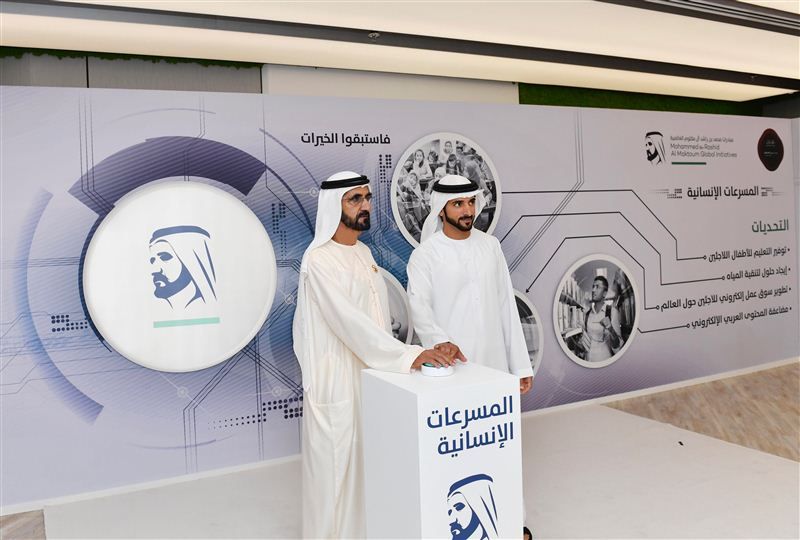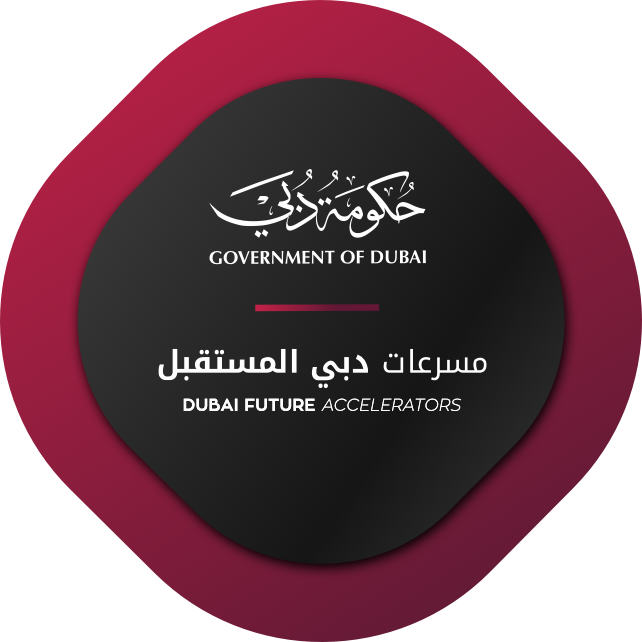UAE Humanitarian Accelerators Seek Solutions for Water and Poverty
Published on by Water Network Research, Official research team of The Water Network in Government
Dubai launches Humanitarian Accelerators to find technology-driven solutions for education, water and refugee poverty.
The Humanitarian Accelerators are launched in collaboration with Mohammed bin Rashid Al Maktoum Global Initiative and Dubai Future Accelerators.

UAE Vice President and Prime Minister and Ruler of Dubai His Highness Sheikh Mohammed bin Rashid Al Maktoum launching the Humanitarian Accelerators (Photo credit: Government of Dubai media office)
UAE Vice President and Prime Minister and Ruler of Dubai His Highness Sheikh Mohammed bin Rashid Al Maktoum today launched the Humanitarian Accelerators, a first of its kind initiative in the Arab World which aims to gather skilled professionals in the cause of aiding the humanitarian sector. The accelerators will be dedicated to improving the financial efficiency of humanitarian organisations and leapfrogging conventional technology approaches in order to enhance the work of the humanitarian sector.
Four Challenges
The Humanitarian Accelerators will address four key challenges facing the region. The first challenge is providing access to quality education to all children, including refugees by providing e-learning tools and developing innovative mechanisms, such as accessible websites, that enable young students to access interactive educational platforms regardless of where they are located.
There are overwhelming obstacles facing young students, especially those living as refugees, in gaining a formal education. There are no schools or curricula that accommodate refugees, there is a shortage of educational tools and qualified teachers, and there are obstacles to obtaining an education in the face of poverty. These issues must be addressed, and radical solutions must be found, to empower future generations in the face of this crisis.
The second challenge is providing access to clean water in underprivileged countries. Today, MBRGI has utilized conventional solutions to provide clean drinking water to over 10 million people – harnessing technology to expand this reach is the next step. Access to clean drinking water is a global challenge, with approximately 780 million people without access to a clean source or water.
Furthermore, over 800 million children under the age of five and mostly in developing countries die every year from diarrhoea caused by unclean water. The Humanitarian Accelerators will look for solutions to create cost-effective technology that can purify water efficiently, quickly and in large quantities that can be delivered to the most affected communities.

The third challenge facing the region is the number of refugees living in poverty – up from 50% in 2015 to 70% in 2017 as per UNHCR reports.
The Humanitarian Accelerators will focus on finding electronic solutions and developing a platform for e-business in order to give refugees around the world a platform to leverage their skills, capabilities and services and market their products online, providing them with tangible economic opportunities.
The fourth challenge to be addressed is the below-average reading material and content in Arabic online.
The Humanitarian Accelerators will seek to devise electronic solutions in order to increase the amount, and quality, of Arabic content online.
This will be the humanitarian element of Dubai Future Accelerators, an intensive programme designed to identify emergent technologies and create effective partnerships and strategies for embracing the future.
Sources: Government of Dubai and Open Government
Media
Taxonomy
- Water Access
- Integrated Urban Water Management
- Poverty Reduction
- Water Supply
- Drinking Water Managment
- Drinking Water
- Infrastructure
- Water Sanitation & Hygiene (WASH)